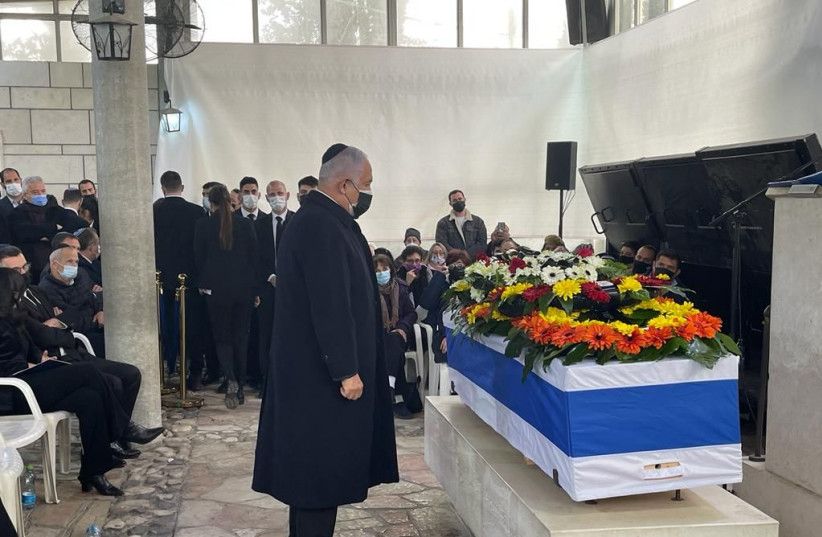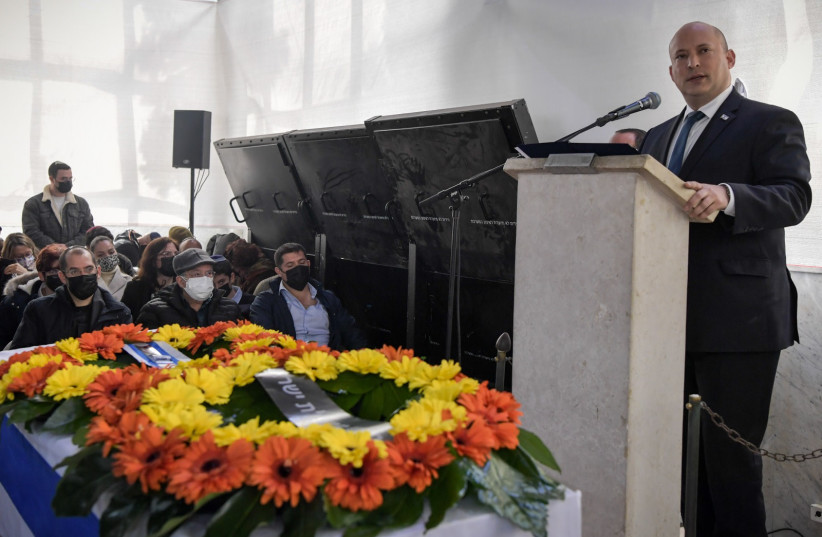Justice Minister Gideon Sa’ar called former Supreme Court president Miriam Naor a “crusader for justice” at her funeral and burial at Jerusalem’s Sanhedria Cemetery on Tuesday.
Naor died on Monday at the age of 74.
Besides serving as chief justice from 2015-2017 and in the courts for decades, she was at the time of her death serving as the head of the state inquiry probing the Mount Meron disaster.
It was unclear who will replace her and when, though it was clear that her death would cause delays in the inquiry’s progress.
Public officials who spoke at her funeral included Prime Minister Naftali Bennett, President Isaac Herzog, Supreme Court President Esther Hayut, Sa’ar, Interior Minister Ayelet Shaked, who is a former justice minister, and Acting Knesset Speaker Eitan Ginzburg.

Family members included her son Naftali, her granddaughter Netah and her nephew Moshe.
Naor was known as a moderate activist who moved away from the more aggressive activism of former chief justices Aharon Barak and Dorit Beinisch, though more liberal than moderate conservative Asher Grunis, who immediately preceded her.
Sa’ar credited Naor for advising the justice minister several years ago to adopt an initiative he was pushing to inject a new defense for defendants into Israeli law called “defense in the interest of justice.”

The defense allows defendants to make broader and bigger picture arguments to judges about how the case against them might be unjust even if at a technical level there might be a basis to convict them.
Herzog called her “the torchbearer of the Supreme Court,” while Bennett said he had been overwhelmed during a recent meeting with her regarding the seriousness of her commitment to preventing any further loss of life at future Mount Meron events.
Shaked, who fought tenaciously with Naor for years over Supreme Court appointments, broke into tears while eulogizing Naor.
Calling Naor “her friend,” she made it clear that despite their disagreements over policy, she had tremendous respect for Naor on a personal level and even viewed her as a role model.
Naor was a moderate activist in that she was ready to declare even important government policies unconstitutional. But she mostly deferred to the state on any security issues and often even on controversial policy issues if minority rights might only be harmed in the future.
